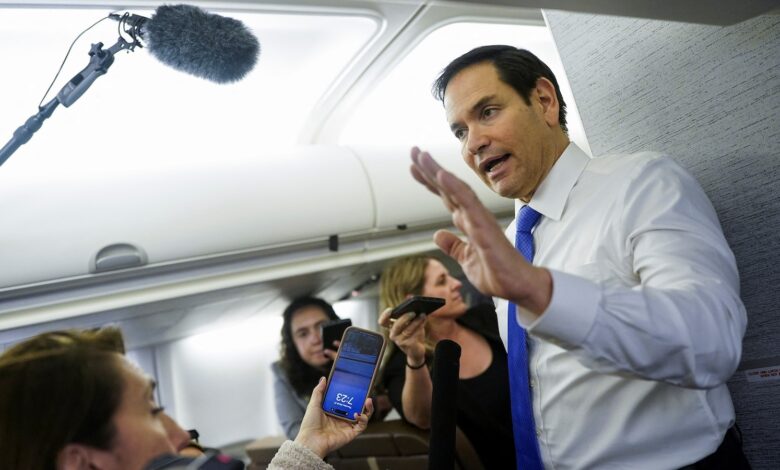‘Death sentence’: Advocates blast $1.3 billion in State Department food aid cuts

The decision by the State Department to drastically reduce foreign aid to countries around the world has sparked concern among U.S. officials and advocacy groups. The latest cuts include the termination of critical aid contracts in Afghanistan, Yemen, Somalia, Syria, Lebanon, Jordan, Haiti, Gaza, Niger, Palau, Papua New Guinea, and other countries.
According to OneAID, a grassroots advocacy group, the total amount of aid cuts surpasses $1.3 billion. This move marks a significant shift in policy, as exemptions were previously granted to continue funding after the Trump administration’s initial reduction in foreign aid faced backlash.
State Department spokeswoman Tammy Bruce confirmed the termination of numerous contracts but clarified that the majority of funding for the World Food Programme (WFP) remains intact. She emphasized that 85% of USAID programs with the WFP are still active, dispelling rumors of defunding the program.
However, some WFP programs were indeed terminated, citing concerns about funding benefiting terrorist groups such as the Houthis and the Taliban. Other contracts were cut due to providing cash-based assistance, which the administration is moving away from to ensure accountability for American taxpayers.
The WFP expressed alarm over the funding cuts, warning that millions of people facing extreme hunger and starvation could be left without essential assistance. The organization is seeking clarification from the U.S. administration and urging continued support for lifesaving programs.
Despite the State Department’s reassurances, questions remain about the motivations behind the funding cancellations. One official pointed to Jeremy Lewin, the USAID deputy administrator for policy, as the driving force behind the cuts. Many affected programs had recently received hiring privileges or spending modifications approved by Secretary of State Marco Rubio.
These decisions were seen as essential for delivering critical aid amid the Trump administration’s review of foreign aid spending. While some programs were mistakenly eliminated, Bruce assured that they have since been reinstated, although details were not provided.
The Trump administration’s freeze on foreign assistance earlier this year led to a series of stop-work orders and hiring freezes across humanitarian aid operations. Despite canceling billions in aid grants and contracts, senior officials like Rubio have pledged to prioritize essential assistance while restructuring aid distribution.
“This is not about eliminating aid. This is about reevaluating how aid is distributed,” Rubio stated last month. The future of foreign aid remains uncertain as the State Department continues to navigate these changes and address the evolving needs of vulnerable populations worldwide.





